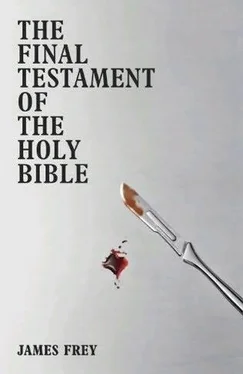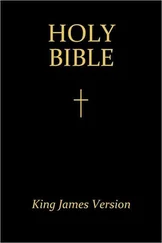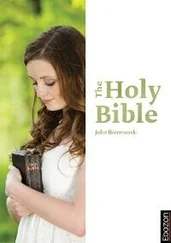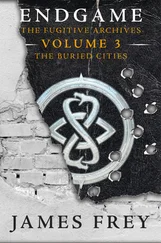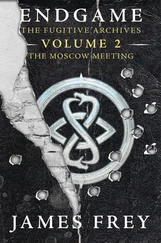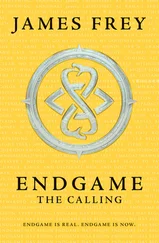My research proved to be very enlightening, and epilepsy turned out to be far more fascinating than I’d imagined it could or would be. Over the course of recorded time, some of the world’s most important historical figures either were or are thought to have been epileptic, including Pythagoras, Socrates, Plato, Hannibal, Alexander the Great, Julius Caesar, Petrarch, Dante Alighieri, Leonardo da Vinci, Michelangelo, Isaac Newton, Napoleon Bonaparte, Ludwig van Beethoven, Lord Byron, Edgar Allan Poe, Fyodor Dostoyevsky, Vincent van Gogh, Alfred Nobel, Thomas Edison, and Vladimir Lenin. Many scientists and researchers believe that the genius these people possessed was either directly caused by, or most certainly related to, their epilepsy. The number of religious figures I found who are thought to have had it was astonishing, among them the Priestly source of the Pentateuch, Ezekiel, Saint Paul, the Prophet Muhammad, Joan of Arc, Martin Luther, Saint Birgitta, Saint Catherine of Genoa, Saint Teresa of Ávila, Saint Catherine of Ricci, Saint Margaret Mary, Ellen G. White, and Saint Thérèse of Lisieux. Among those who either definitely had or are thought to have had ecstatic epilepsy are Saint Paul, the Prophet Muhammad, Joan of Arc, Beethoven, and Dostoyevsky. The effects those moments, those brief moments before their seizures hit, had on their lives, and on the world at large, are astonishing: on the road to Damascus, Saint Paul had his vision of the resurrected Jesus, which led to his conversion to Christianity; the Prophet Muhammad is thought, by some, almost always non-Muslims, to have spoken to the archangel Gabriel and to have received the Qur’an from him during those moments; Joan of Arc is believed to have received the instructions from Saint Margaret, Saint Catherine, and Saint Michael that inspired her to lead the French Army into battle and resulted in its victories against the English in the Hundred Years’ War; Beethoven is thought to have conceived of his symphonies in their entirety, which is perhaps how he was able to compose them even when he was deaf; and Dostoyevsky is believed to have conceived of his novels in their entirety. In thinking specifically of Saint Paul and the Prophet Muhammad, who, while I do not worship in the same way as them or the followers of the religions that one preached and one founded, are certainly the two most important religious figures who have appeared on earth since the death of Jesus Christ, I was heartened in my belief that Ben might be divine, that his visions might be of God, instead of a false apparition of God, and that his condition might be a requirement of his potential rather than an impediment to it.
I returned to the hospital the next day, stopping first at the synagogue to ask my assistant rabbi to handle those responsibilities that are normally mine. When I entered Ben’s room, Jacob and Jeremiah were sitting across from Ben, who was cross-legged on his bed. They both had their Bibles open and were giving him book titles with chapter and verse numbers, and as soon as they finished saying them, Ben immediately recited the text, in what I assume was a word-for-word rendering, back to them. Jacob looked up at me and started to speak, but Ben told him he wanted me to stay. There were no other seats, so I stood a few feet away from the foot of Ben’s bed.
What I saw was absolutely amazing. Jacob was using an Old Testament, the first five books of which, Genesis, Exodus, Leviticus, Numbers, and Deuteronomy, also known as the Five Books of Moses, constitute the Torah, and Jeremiah was using the New Testament, the primary focus of which is the story of Jesus Christ. For over an hour they drilled him. They’d quickly flip through the pages, the book, chapter, and verse they landed on, and each time Ben would recite the corresponding text correctly. Near the end of it, while Jeremiah was visibly awed and excited, and I was silent and, in a way, very proud, Jacob seemed very anxious and nervous. He stopped Jeremiah, closed his Old Testament, and spoke. How do I know you didn’t memorize these while you were away?
Because I told you I didn’t.
Why should I believe you?
It doesn’t matter to me if you do or you don’t.
Why won’t you tell me what you did for all those years?
Because it doesn’t matter.
Where were you?
I was drifting.
Where?
Doesn’t matter.
It does to me.
Let’s end our conversation. I’d like to spend some time with the rabbi.
Tell me what you did and I’ll end the conversation.
I lived and felt and learned and hurt and fell in love once and most of the time I wasn’t happy but some of the time I was and I never stepped foot in a church, a synagogue, a mosque, a temple, or any other kind of religious establishment and I never picked up a book of any kind, much less memorized one.
You didn’t answer my question.
I just didn’t give you the answer you wanted.
Jacob stood and said he’d be back in an hour, and he and Jeremiah started to walk out of the room. Ben spoke.
I love you, Jacob. And I appreciate how much care and concern you’ve shown me.
Jacob stopped and looked back and he almost smiled, which would have been the first time I had seen him smile since he visited me in my office, and he said thank you, and he and Jeremiah left.
Ben looked at me.
You spoke with my doctor.
Yes, I did. It was very interesting, and very informative.
What do you think?
Words of science mean nothing in the face of God. Ben smiled.
It could just be a malfunction of my brain.
What do you know about Messiah?
The Messiah?
Messiah. Not everyone believes it will be a person. Many believe, as they do with large sections of the Torah, that the story, and the prophecy, of Messiah is symbolic, and not about an actual person who may have lived, may currently be alive, or may at some point walk among us, but about a period of time, a Messianic age, when Jews, and the rest of the world, will live in peace.
Is that what you believe?
No.
You believe in a person, an actual Messiah?
Messiah, or Moshiach, means anointed, or the anointed one, in Hebrew. It is a word that has been used to refer to many things and many people in the Torah, including kings, prophets, priests, and warriors. Some believe we may have seen many Messiahs already, the most prominent being David, Solomon, Aaron, and Saul. In at least three points in our history, a great many Jews believed the Messiah was among us. In 132 CE, a Davidic soldier named Shimon Bar Kochba united the armies of the tribes of Israel and led a revolt against Roman rule, which freed Israel. He established a new government in Jerusalem, and he started rebuilding the Temple of Solomon. Rabbis made proclamations naming him Messiah and stating that the Messianic age had begun, which lasted for two years, at which point the Romans returned, crushed the Jewish armies, and killed a large portion of our population, including Bar Kochba. Fifteen hundred years later, in 1648, a Turkish rabbi named Sabbatai Zevi proclaimed himself Messiah, basing his claim on a prophecy set forth in the Kabbalah text of Zohar, which predicted the Messiah’s arrival in that year. Though he was not Davidic, and possessed none of the requirements of Messiahship, by 1665, when he proclaimed himself Messiah again, he was able to convince eighty percent of the world’s Jewish population at the time that he was indeed Messiah. He ultimately converted to Islam before Sultan Mehmed iv of Constantinople, humiliating his followers and embarrassing Jews around the world. Against all reason, there are people today who call themselves Sabbatians and believe he was Messiah, and that in order to herald the Messianic age, they pray for his return. The most recent individual thought to be Messiah was Menachem Mendel Schneerson, the seventh Rebbe of Chabad Lubavitch in Brooklyn, who lived from 1902 until 1994. He was undoubtedly a great man, and spent his life spreading Orthodox Judaism and working to unite Jews, but his call for prayer to hasten Moshiach was not a proclamation of his own Messianism, despite the belief of many of his own followers, which he neither supported nor rejected. You ask what I believe, and as you know, as an Orthodox Jew, and as a rabbi, I am required as part of my belief to subscribe to the thirteen principles of faith set forth by Maimonides. The twelfth principle states: I believe with perfect faith in the coming of the Messiah. How long it takes, I will await his coming every day. I also recite the Shemoneh Esrei, the eighteen prayers, three times a day, at morning, afternoon, and evening services, and in that prayer, I pray for the conditions of the Messiah to be met: the return of Jewish exiles to Israel, a return to religious courts and God’s system of justice, an end to evil and the humbling of sinners and heretics, rewards to the righteous, the rebuilding of Jerusalem and the restoration of a king descended from David, and the building of the Third Temple of Solomon.
Читать дальше
